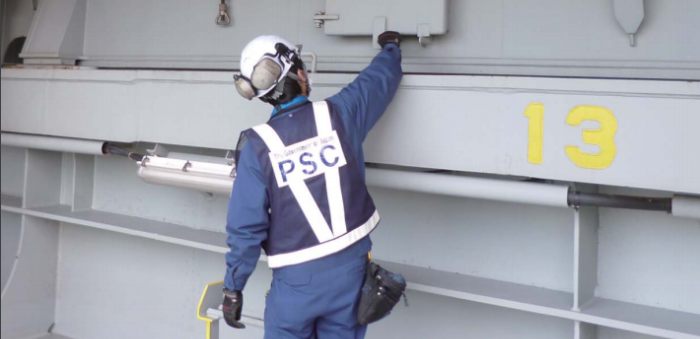The Bahamas maritime Authority issued a guidance on the management of Port State Control (PSC) inspections, to ensure that companies operating Bahamian ships comply with international Convention requirements and national regulations of the PSC process, and to maintain the position of Bahamian flag in the white performance list.
Preparation for PSC Inspections
- Bahamian registered ships are required to be operated and maintained in accordance with the provisions of the relevant international Conventions and Codes and/or Bahamas requirements.
- It is the responsibility of the Company and the Master of the ship to ensure that the ship complies with the relevant requirements and that the ship and her crew are prepared for PSC inspections.
- A number of bodies, such as Classification Societies, P&I Clubs, etc., have produced checklists and guidance relating to preparation for PSC inspection. Companies may find these useful as an aid to ensuring that the vessel is routinely prepared for PSC inspections.
- PSC inspections should be carried out in a manner consistent with:
-IMO Assembly Resolution A.1119(30) Procedures for Port State Control 20172 ; and
-ILO Guidelines for PSC officers carrying out inspections under the MLC 2006. - It is important that the Master and senior officers are familiar with the PSC process. The BMA recommends that a copy of A.1119(30) is carried onboard to assist with professional participation in the PSC process.[smlsubform prepend=”GET THE SAFETY4SEA IN YOUR INBOX!” showname=false emailtxt=”” emailholder=”Enter your email address” showsubmit=true submittxt=”Submit” jsthanks=false thankyou=”Thank you for subscribing to our mailing list”]
- Companies are urged to ensure that their SMS incorporates procedures to prepare for, and to deal with, PSC inspections and detentions.
- Particular attention should be paid to:
-Appendix 2 (“Guidelines for the Detention of Ships”) of A.1119(30), which provides an indicative list of deficiencies which are considered to be of such a serious nature that they may warrant the detention of the ship;
-Section 5.2 (“Examples of circumstances that may require the detention of the ship”) of the ILO Guidelines for port State control officers…, which provides examples of the kinds of circumstances that could warrant the detention of the ship. - The Master should recognise that PSC Officers (PSCOs) have an expectation that their attendance onboard will be given full and prompt attention. It is therefore important to establish a professional working relationship with the PSCO and provide the necessary support during the inspection.
- On conclusion of the inspection, the Master should, where appropriate, discuss the PSC report with the PSCO with reference to the relevant international Conventions or Codes, the justification for the deficiencies and/or the timeframe given for rectification of deficiencies.
- Failures and breakdowns of equipment need not be a cause for detention provided that the Flag State and Recognised Organisation have been advised as soon as the breakdown is experienced, and the Port State has been alerted prior to arrival. Such reports may be the trigger for PSCOs to attend on board and so the ship must be prepared for this attendance.
- Deficiencies identified at PSC inspections should be closed out directly with the PSC authority involved. In some MoUs rectification of deficiencies will be confirmed at the next scheduled PSC inspection in that MoU.
- It should be noted that if a ship has open deficiencies the targeting factor may be increased increasing the possibility of further PSC inspections.
- Most of the PSC MoUs provide information on inspections, targeting criteria, Code of Conduct for PSCOs and appeal/complaint procedures on their websites. Please refer to Annex 1.
- The BMA has observed occasional inconsistencies in approach and interpretation between and within various Port States, however it should be noted that there is no formal appeal or review process for non-detainable deficiencies.
- Where a Company wishes to challenge a non-detainable deficiency, they should contact the PSC authority concerned requesting that the deficiency be reviewed. In the experience of the BMA, such requests have limited success.
Reporting of PSC inspections
- In order to assist the BMA in identifying those ships which may be at increased risk of detention, the Company is required to send copies of every PSC inspection report (Form A and, if deficiencies are identified, Form B) to the BMA as soon as possible after the inspection.
- The BMA will examine the PSC reports to determine if any further action is appropriate. This may include an additional ISM audit or BMA inspection. The BMA will contact the Company if any further action is deemed appropriate.
- The Classification Society and/or Recognised Organisation issuing the affected certificates may have their own reporting requirements which the Company and Master should follow.
- Persistent failure to provide PSC inspection reports will be treated by the BMA as objective evidence of a failure in the safety management system which may lead to non-conformities being raised at external ISM audits.






























































